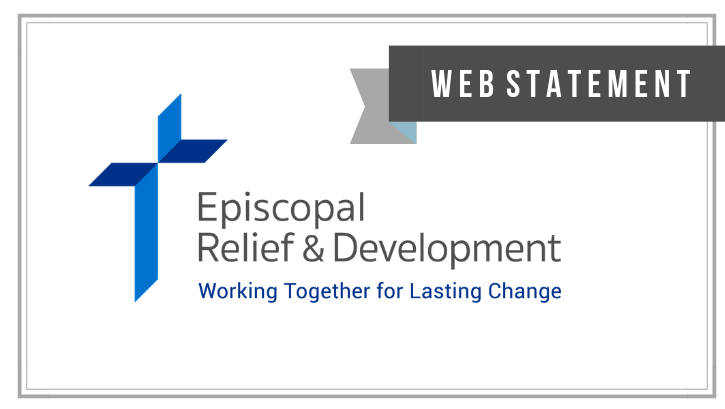Supporting the Episcopal Diocese of Jerusalem and the Middle East

Supporting the Episcopal Diocese of Jerusalem and the Middle East
Web Statement
January 15, 2020
Episcopal Relief & Development is supporting the Episcopal Diocese of Jerusalem with funding for food, medical care and fuel as it responds to urgent humanitarian needs due to the current Israeli-Palestinian conflict.
With the support of Episcopal Relief & Development and other community agencies, the diocese’s Al-Ahli Hospital in Gaza is providing emergency assistance to those affected by the ongoing bombing and violence. This support has enabled the hospital to buy fuel to run its generators, which are crucial during frequent and prolonged electricity outages. Medication and other critical medical supplies such as physical therapy equipment, orthopedic screws and plates enable the hospital to respond to emergency needs. The Al-Ahli Hospital is also providing counseling and psycho-social assistance.
Episcopal Relief & Development is also supporting the diocese with funding for a portion of the Jerusalem Princess Basma Centre’s medical staff. The centre specializes in the rehabilitation of children with disabilities. This funding will enable the Princess Basma Centre to continue to provide critical interventions and treatments for this vulnerable population.
“Please continue to pray for our partners in the Holy Land and the communities they serve, and for all those who are affected by the conflict,” said Nagulan Nessiah, Senior Program Officer, Disaster Response and Risk Reduction for Episcopal Relief & Development.
For over 75 years, Episcopal Relief & Development has been working together with supporters and partners for lasting change around the world. Each year the organization facilitates healthier, more fulfilling lives for more than 3 million people struggling with hunger, poverty, disaster and disease. Inspired by Jesus’ words in Matthew 25, Episcopal Relief & Development leverages the expertise and resources of Anglican and other partners to deliver measurable and sustainable change in three signature program areas: Women, Children and Climate.


